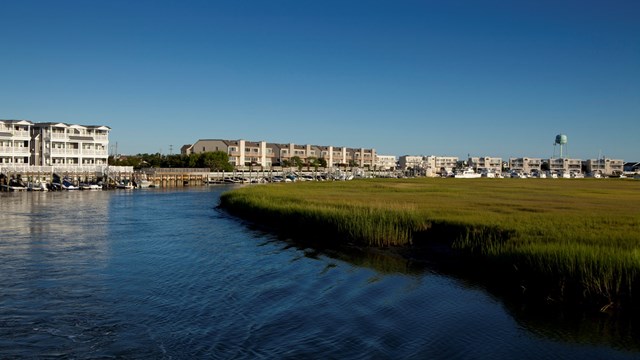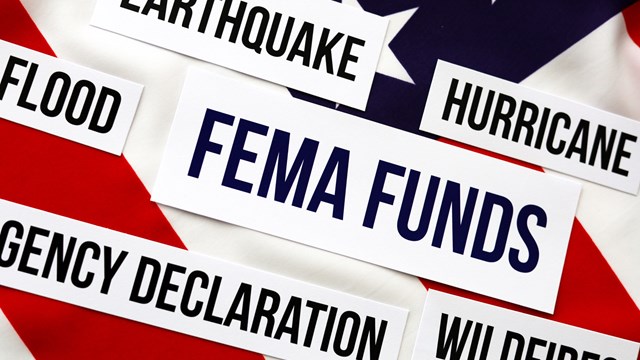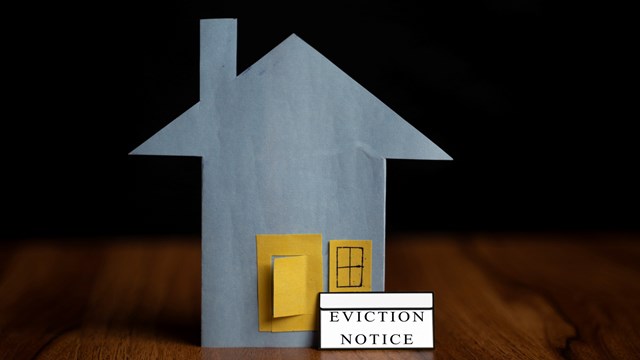Few subjects get people as riled up as taxes. Whether it's sales tax, income tax, estate tax or property tax, the thought of the taxation can infuriate and perplex. If not for taxes, after all, we would likely be speaking with British accents, swearing fealty to the Queen.
It's easy then to understand the emotional debates that have been going on in New Jersey for years regarding the issue of property taxes. New Jersey has been at or near the top of the list when it comes to how much individual residents pay in property taxes each year. According to the New Jersey Tax Foundation, New Jersey residents are 10th in the nation for overall tax burden.
When it comes to property taxes however, New Jerseyans pay till it hurts—to the tune of an average $5,991 in property taxes per household annually.
Also, according to the New Jersey Tax Foundation, New Jersey is one of the 37 states that collect property taxes at both the state and local levels. In fiscal year 2004, (the most recent year for which the Census Bureau published state-by-state property tax collections) New Jersey's localites collected $18.2 billion in property taxes, along with $3.6 million in property taxes at the state level. Thus, New Jersey's combined per capita property tax collections were the highest in the nation.
Where Everyone Stands
This year, Governor Jon Corzine and legislators worked to put together a package that will provide a 20 percent property tax rebate for homeowners. On April 3rd, Corzine signed into law, A1/S20, intended to provide homeowners with immediate and substantial property tax relief.
Homeowners with incomes up to $100,000 will receive a 20 percent reduction through either a credit or a rebate. Those with incomes between $100,000 and $150,000 will receive a 15 percent reduction, and those with incomes between $150,000 and $250,000 will get a 10 percent cut. The governor's office estimates that the program will provide benefits to 1.9 million—or about 95 percent—of all homeowners in the state, with the average benefit clocking in at close to $1,100.
"This year, hardworking homeowners will experience the largest level of relief in state history," said Senate President Richard Codey on the day of the signing. "The four percent tax levy cap will be instrumental in helping to sustain this relief over time. Rest assured, the totality of our efforts will produce long-term reform and in the interim taxpayers will get much-needed relief now."
These cuts were made possible in large part because of an increase last year in the state's sales tax, which rose to seven cents on the dollar. And Democrats in the State Assembly want to amend the state Constitution to ensure that one cent of that seven-cent increase would be dedicated to property tax relief not just this year, but every year. Organizations such as the New Jersey State League of Municipalities (NJSLM) are supporting the proposal, known as ACR-20, and are pushing to have it on the ballot in November.
At public hearings the League's representative, Somerdale Mayor Gary Passanante, told the Assembly Appropriations Committee that while thankful for this year's 20 percent reduction, "There has been continued concern that this relief will not be sustainable in the years to come. This dedication, if approved by voters, would go a long way to addressing that concern."
To date, Corzine is opposed because he believes it limits future budgetary choices. If the money from the sales tax is constitutionally dedicated just to property tax relief, what happens if it's needed elsewhere? Will the state have to raise additional revenue?
"It's a normal reaction from the administration, saying that they don't know what the future brings," says the NJSLM's William Dressel. "We know though that if we don't take action today, the problem is going to be worse in the future. [The constitutional dedication] is a very strong policy statement. The people need assurances that the number one issue facing this state is being dealt with in a serious manner. This initiative is a step forward."
Not Enough?
For many New Jersey residents, paying for property tax relief with sales tax money doesn't quite add up. Joseph Caruso, chairman of the Red Faction, a pro-Republican political action group, wrote in The Record, "[Every] time you buy a sandwich at the deli, get your car repaired or pay your gym membership, you are financing your own 'rebate' with the state's seven percent sales tax, which was expanded to services previously untaxed, such as tanning salons. The state is giving you back your own money and calling it tax reform. That's alarmingly dishonest."
Roy Downing, a New Jersey resident and chairman of the American Reform Party, sees a cycle of raised taxes and broken promises in New Jersey's past efforts at tax reform. Years ago, "They told us we needed a state income tax increase to ease property taxes. The voters went for it, thinking, 'Let's let everyone help pay for it.' But then the property taxes went up. They said they'd raise the taxes on the tolls and then the property taxes would go down. But they went up. What is happening to all those billions of dollars in tax revenue? It doesn't seem to make a dent."
Where the Money Goes
The NJSLM estimates that property taxes account for around 45 percent of New Jersey's state and local tax revenue, compared to a national average of just over 30 percent. New Jersey property taxes equal roughly 5.6 percent of personal income, compared with the national average of 3.6 percent. What does that revenue cover? In New Jersey, more than two-thirds of it is used to cover the cost of public education and that, for many, is where the problem lies.
"In Florida, their taxes are way down because the state pays for education with other tax sources," not property tax, says Downing.
Dressel agrees. "We think we should be looking at alternate sources of revenue for education."
Others believe that budgetary cost cutting and the consolidation of services may provide the cuts needed to achieve a balanced budget while lowering taxes and keeping them at a more manageable rate. Corzine recently signed bills to root out corruption in government and increase fiscal oversight and accountability of school districts. He also inked a measure creating a commission to study and recommend municipal consolidations and other actions designed to improve efficiency and eliminate duplication.
"Generally, people can see that in a lot of cases, having more than 500 municipalities and more than 600 school districts adds to the problem, but when discussion of consolidation comes up, people aren't willing to give up home rule," says Curt Macysyn of the Community Associations Institute of New Jersey (CAI-NJ). And studies have found that a high number of municipalities and school districts have little to do with the root cause of the high tax burden and combining those municipalities and districts would equal only minimal savings.
"No one seems to have been able to address the core issues of why [property taxes] are so high," he says. And even if consolidation was the key, it all eventually goes back to the idea that most homeowners are reluctant to give up control of their local domain.
When it comes to the health of the condo market in New Jersey and the well-being of the associations that run those condos, property taxes—as onerous as they are—seem to have little impact on the overall picture when it comes to enticing new residents to make the move to Jersey.
"You have to live here first and experience it and then, yes, I think people start making decisions based on it," Macysyn says. "But there are a lot of things that counterbalance that high tax rate that make New Jersey attractive to residents. Certainly, though, a high tax rate is not going to go into the positive column for someone making a decision."
Ultimately, everyone from homeowners to political advocates to the members of the state Assembly on up seems to agree that measures must be taken to reduce the property tax burden on the people of New Jersey. Whether that reduction is achieved through new income sources or through budgetary cuts or consolidation or a reallocation of funds is yet to be determined. It may take a combination of solutions to achieve the right balance and the right solution for New Jersey homeowners. Whatever the answer, the motivation to find it seems to grow year by year, tax bill by tax bill.
Liz Lent is a freelance writer and frequent contributor to The New Jersey Cooperator.







Leave a Comment